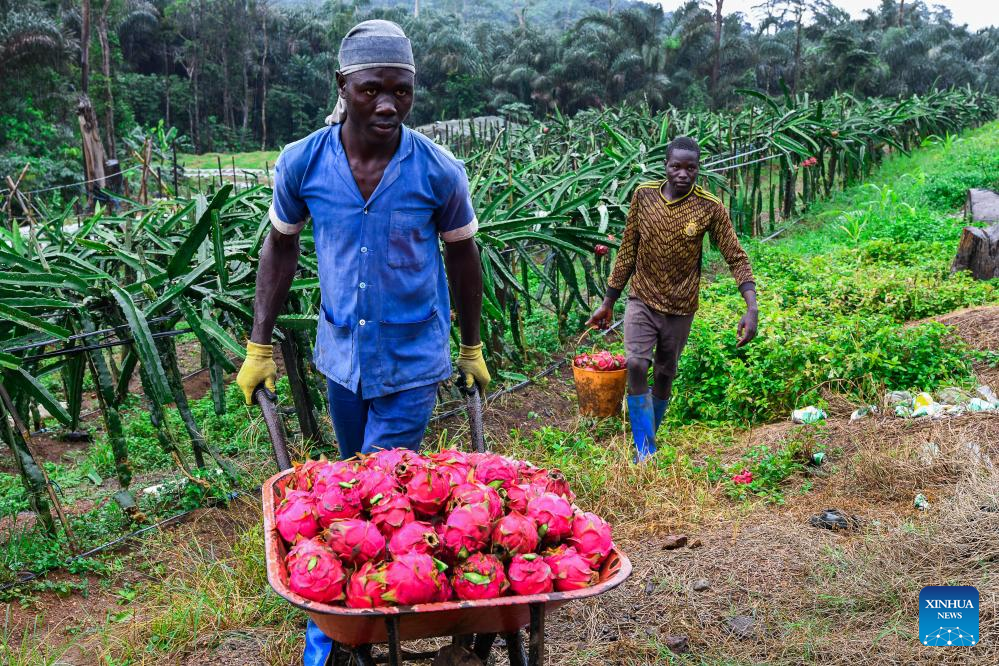
Workers carry harvested dragon fruits from the field at Arnold Kogaing's farm in Souza, in the Littoral Region of Cameroon, Aug. 20, 2025. (Xinhua/Kepseu)
By Arison Tamfu, Wang Ze
YAOUNDE, Aug. 27 (Xinhua) -- On a 10-hectare fruit farm in the Souza locality of Cameroon's Littoral Region, a gentle rain softens the earth and coats trees in shimmering droplets.
Arnold Kogaing is busy picking fruits and packing them into shopping bags with a handful of daily wagers.
The 35-year-old had never imagined he would one day be growing Asian fruit varieties once available only through imports -- until a 2008 trip to China to study mechanical engineering changed his path.
During his years in China, Kogaing realized that Asians favored a healthy diet rich in vegetables and fruits, which prompted him to learn about fruit cultivation and management techniques, particularly greenhouse construction methods.
"I have always been passionate about fruits. I visited plantations (in China). I studied and said to myself, 'Why not grow the fruits in Cameroon?'" he said.
After completing his university studies, the father of two returned to Cameroon, equipped with valuable expertise in Asian fruit farming.
In the sweltering heartland of Souza, where sunshine, heat, and abundant water combine to create a tropical paradise, Kogaing discovered that a seed sown often bursts into life with astonishing speed.
That was where, in 2019, he started cultivating a wide range of fruits, including dragon fruit, longan, jackfruit, lychee, cherry, Chinese melon, and passion fruit, among others.
By the end of 2020, Kogaing celebrated his first harvest, marking the first time locally grown varieties of exotic tropical fruits became available in Cameroon.
"Today, we have approximately 18 varieties. On average, we can produce four to five tons of fruits and vegetables each month," Kogaing told Xinhua at his farm.
However, the fruits initially struggled to gain popularity in the domestic market, and Kogaing had to rely on Asian expatriates as his first customers.
"Over time, we began holding tastings to communicate about the fruits and their benefits. Once Cameroonians tried them, they really liked them. Today, we have a large Cameroonian population who are already familiar with the fruits and, above all, their benefits," said Kogaing, the lone grower of Asian fruits in the country.
In the commercial hub of Douala, located some 40 km from the fruit farm, the fruits are readily available in markets and stores, creating many employment opportunities and enriching local residents' food menus.
"We used to see dragon fruit only on TV; now we eat it," said Jeannet Mahop, a resident of Douala.
"It tastes sweet and smooth, and leaves one with colored lips. It's so nice. My children love it very much," added the mother of five, who has become a regular consumer of dragon fruit.
Vendors also described it as a lucrative business that is transforming their lives.
"People really like the fruit. I have been selling fruits for over 10 years. When I heard about dragon fruit, I decided to give it a try. Since I started selling, I have been able to pay my bills and send my children to school. Life has become more comfortable," Charles Ebot, who has been selling dragon fruit for two years, told Xinhua at his shop in Douala.
Agriculture remains a cornerstone of Cameroon's national economy, with around 70 percent of the population engaging in related production activities. T
As the Central African nation aspires to attain emerging economy status by 2035, it increasingly depends on young and innovative agricultural entrepreneurs like Kogaing to help drive that transformation.
With increased cooperation between China and Cameroon over the past decades, more agricultural products have been introduced in Cameroon, contributing to the country's dominant agricultural sector, said Kogaing, whose fruit farm offers a glimpse at the broader picture of the bilateral agricultural cooperation.
"I learned a lot from my friends in China about growing techniques and even products. We Africans, and Cameroonians in particular, must know that we have a lot to learn from China and Asia," Kogaing said. "Cameroon is Africa in miniature. We have to transform what we have into wealth." ■
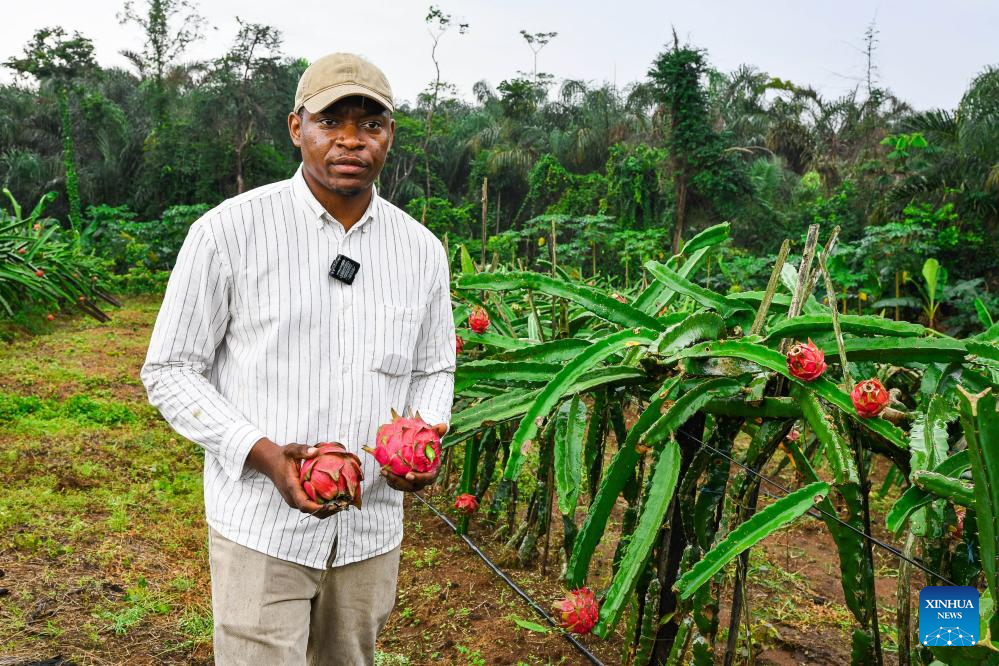
Photo taken on Aug. 20, 2025 shows Arnold Kogaing introducing dragon fruits at his farm in Souza, in the Littoral Region of Cameroon. (Xinhua/Kepseu)
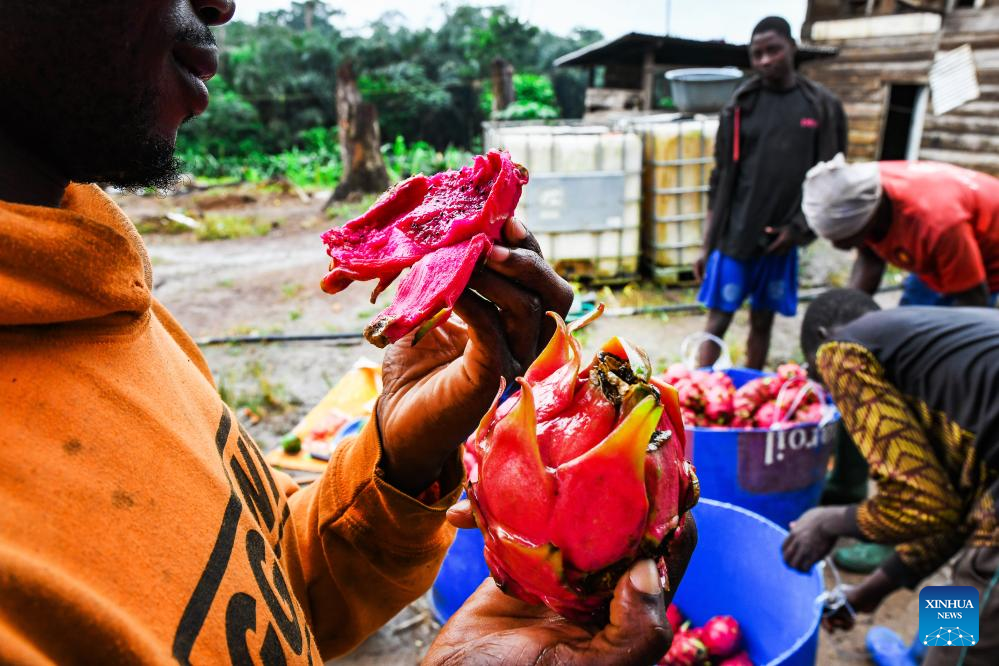
A worker eats a dragon fruit at Arnold Kogaing's farm in Souza, in the Littoral Region of Cameroon, Aug. 20, 2025. (Xinhua/Kepseu)
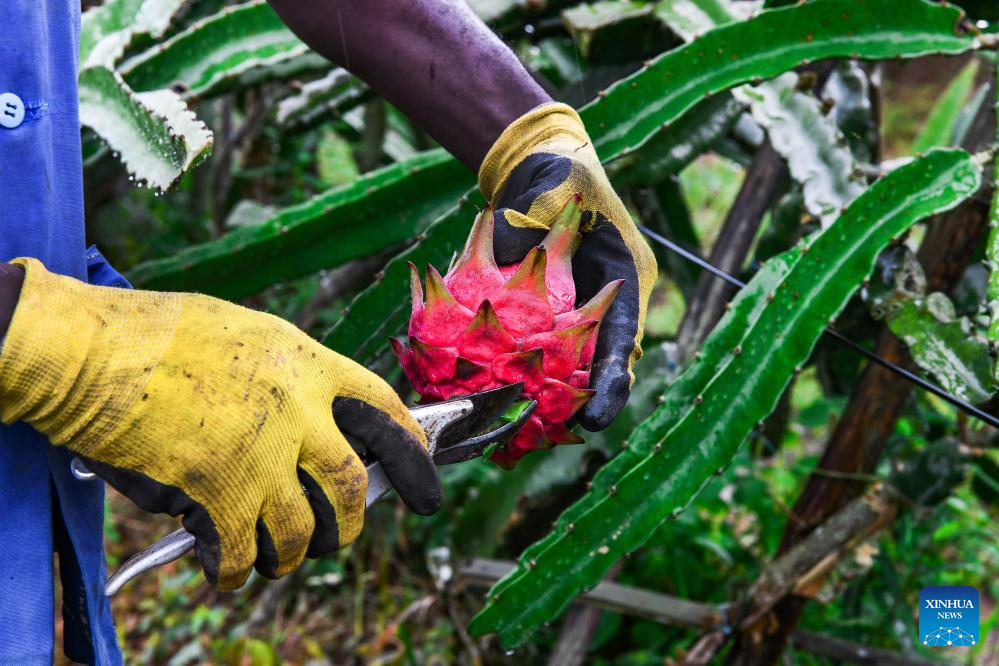
A worker harvests dragon fruits at Arnold Kogaing's farm in Souza, in the Littoral Region of Cameroon, Aug. 20, 2025. (Xinhua/Kepseu)
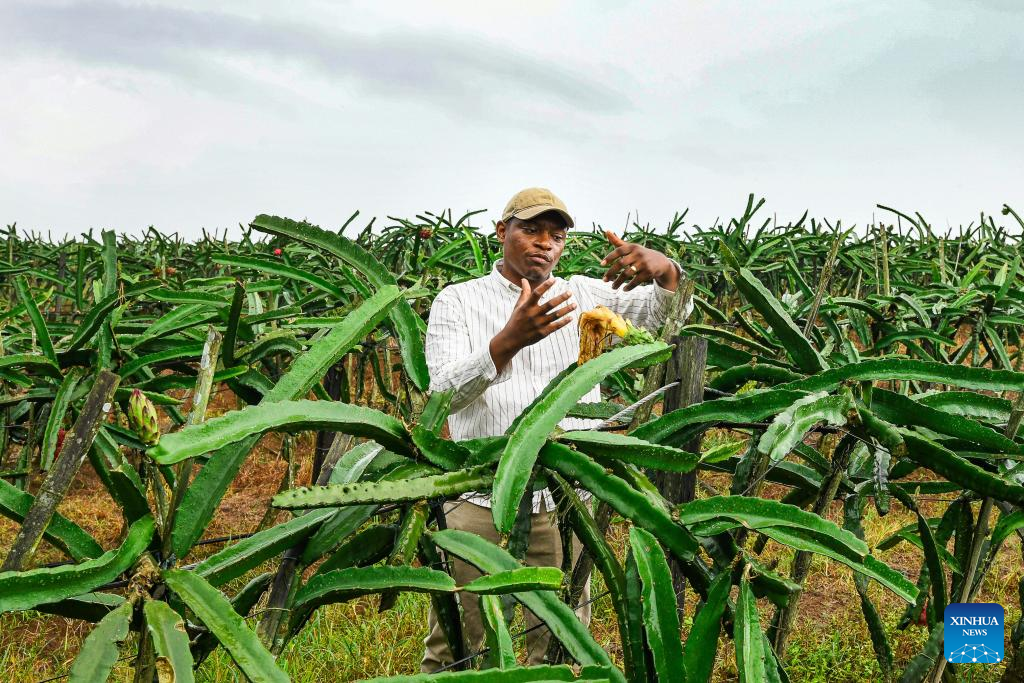
Photo taken on Aug. 20, 2025 shows Arnold Kogaing introducing dragon fruits at his farm in Souza, in the Littoral Region of Cameroon. (Xinhua/Kepseu)
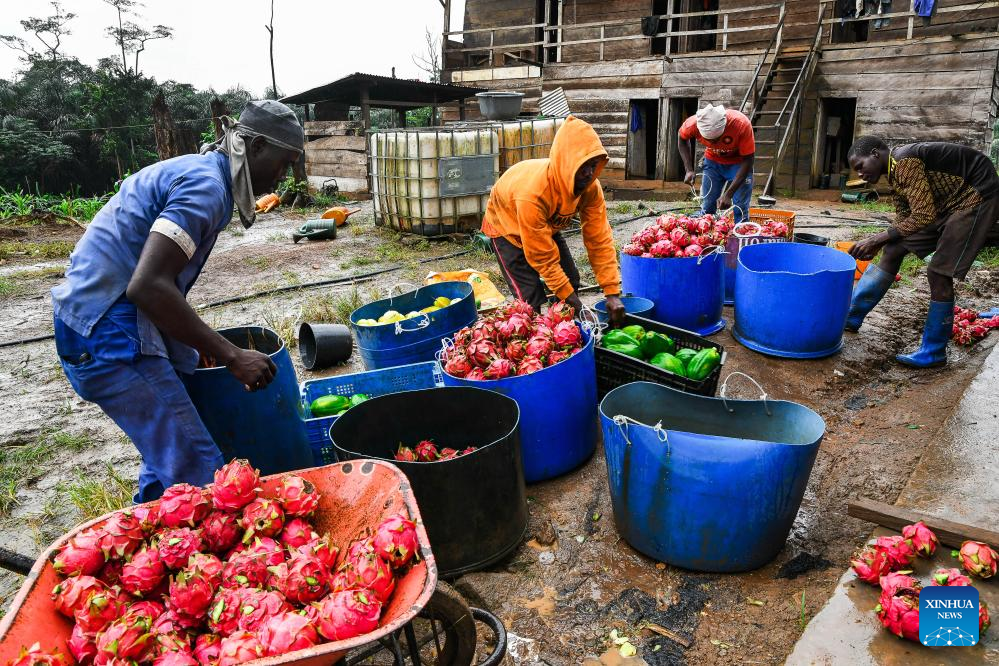
Workers wash dragon fruits before storing them in basins at Arnold Kogaing's farm in Souza, in the Littoral Region of Cameroon, Aug. 20, 2025. (Xinhua/Kepseu)
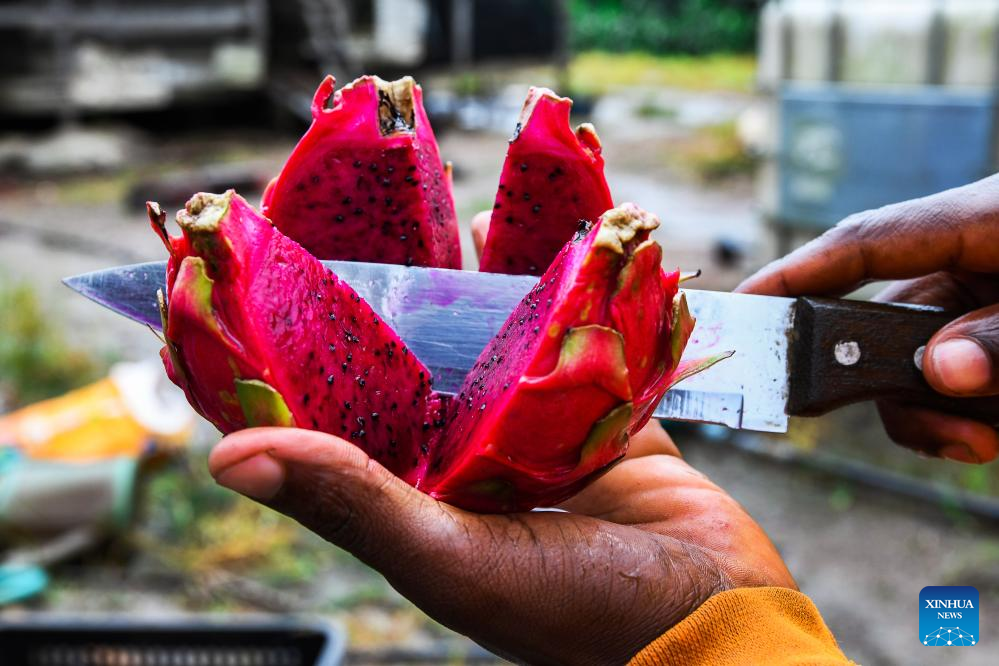
A worker cuts a dragon fruit to demonstrate its ripeness at Arnold Kogaing's farm in Souza, in the Littoral Region of Cameroon, Aug. 20, 2025. (Xinhua/Kepseu)
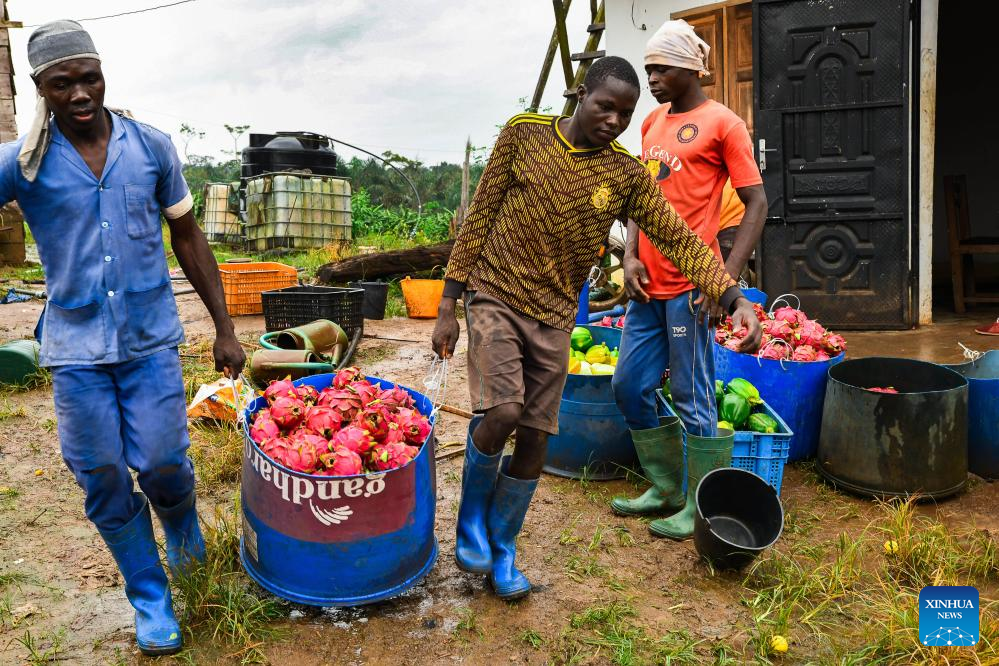
Workers carry harvested dragon fruits from the field at Arnold Kogaing's farm in Souza, in the Littoral Region of Cameroon, Aug. 20, 2025. (Xinhua/Kepseu)
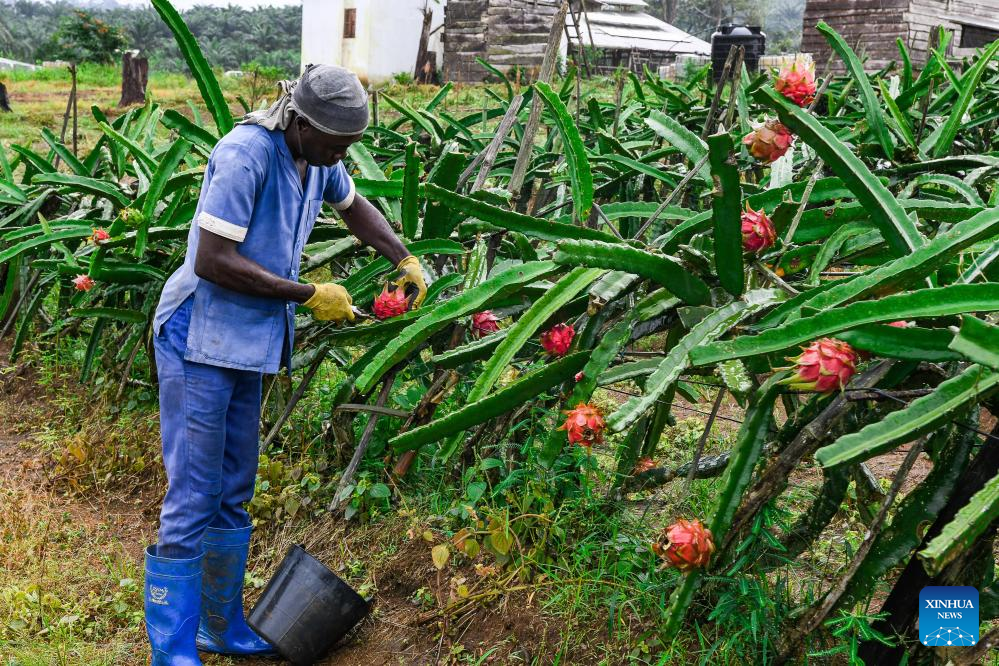
A worker harvests dragon fruits at Arnold Kogaing's farm in Souza, in the Littoral Region of Cameroon, Aug. 20, 2025. (Xinhua/Kepseu)
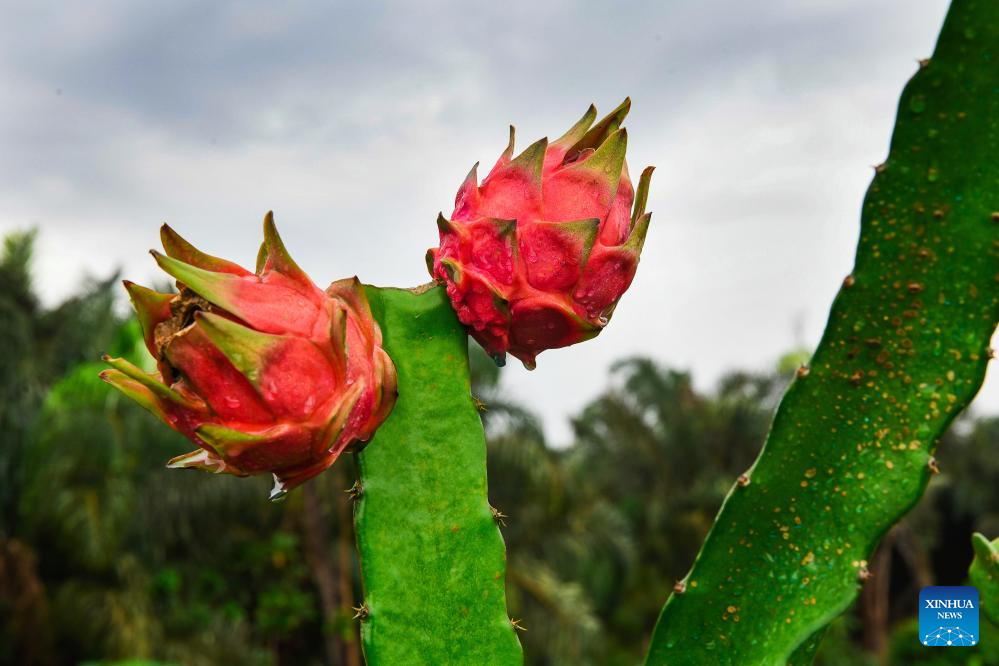
Photo taken on Aug. 20, 2025 shows dragon fruits at Arnold Kogaing's farm in Souza, in the Littoral Region of Cameroon. (Xinhua/Kepseu)
